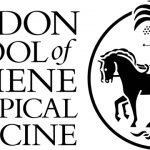- Sex Education: Sexuality, Society and Learning. DOI: 10.1080/14681811.2015.1092432
Abstract
Various health promotion strategies have been implemented in South Africa aiming to encourage young people to talk about issues of sexuality and HIV with their parents/caregivers. Although parent/caregiver sexual communication may be an effective method of influencing sexual behaviour and curbing the incidence of HIV, very little is known about how young people with disabilities in South Africa communicate about these traditionally difficult subjects with their parents/caregivers. Based on findings from a participatory study conducted amongst 15–20-year-old Zulu-speaking youth with physical and visual disabilities, this paper explores how they perceive youth–parent/caregiver communication about sexuality and HIV. Using Foucauldian discourse analysis, the paper outlines how disabled youth–parent/caregiver sexual communication is governed by cultural customs, sexual secrecy and constructs of innocence. It also argues that the experiences and perceptions of young people with disabilities are critical to the development of future interventions to assist parents/caregivers develop communication strategies that help disabled young people make sense of sexual behaviour.





